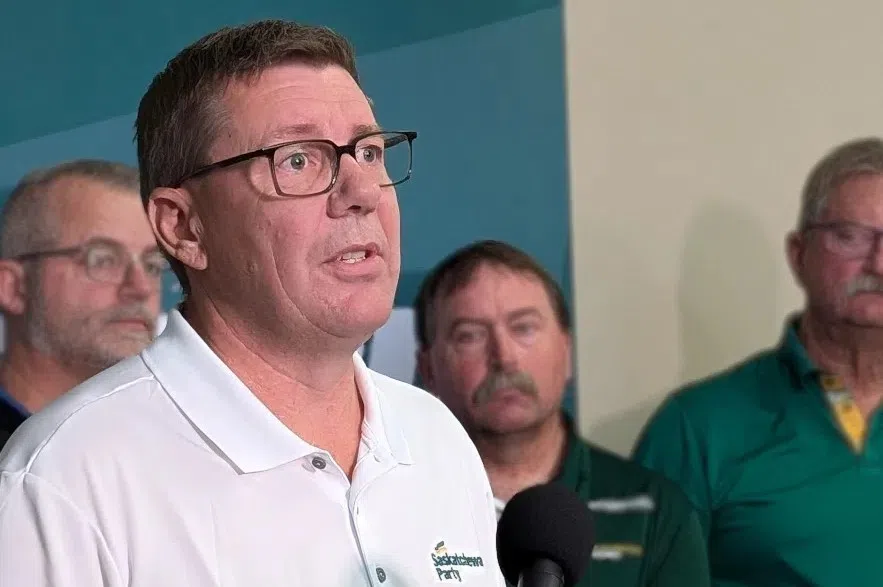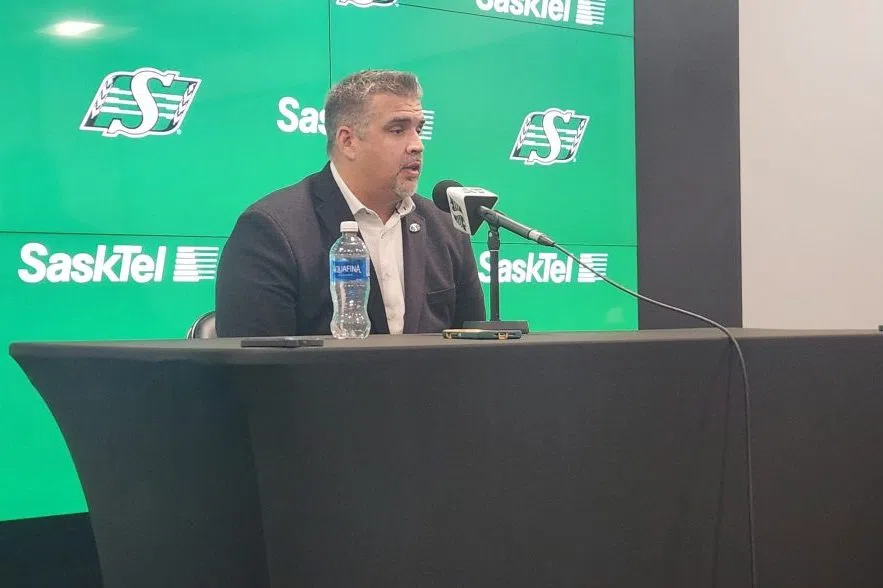Premier Scott Moe does his first sit down interview since being re-elected on Oct. 28 with The Evan Bray Show.
Guest host Taylor MacPherson questions Moe about his thoughts on the election results, his day one priority changes with the change room policy, the oil and gas caps, reaction to the presidential election and more.
Listen to the full interview with Scott Moe on The Evan Bray Show here:
The following transcript has been edited for length and clarity.
MacPherson: I wanted to start by getting your general thoughts on the results of the provincial election, and especially what seems to be a pretty stark divide between urban and rural voters.
Moe: There was a couple of things that I would reflect on, as I look at the provincial elections. First is we were elected the majority government on our platform of continuing to grow our economy and grow the opportunities for people that live here and to build that brighter future. The second thing and point that I would take from the results of this election is that some people voted for some changes in our communities and in our province.
I think what we need to really focus on now as a government is delivering on our platform of affordability and continuing to ensure Saskatchewan is most affordable place in Canada to live. And communicating what a brighter future is. In Canada, we’re having challenges, you know, for example, in accessing a primary health care provider. We’re going to ensure that we can do that in Saskatchewan. We’re going to ensure that people are able to access the surgery in a timely manner. Ensure that we are always focused on setting targets, investing and and having the educational outcomes and the educational opportunities in our K to 12 system.
I wanted to take you back to something you said yesterday during your election campaign. You promised to implement a policy saying that students in Saskatchewan schools essentially would have to use a change room that conforms to their biological gender. Yesterday, you walked that back. Why?
Moe: I’m glad you bring this up because there might be a little bit of confusion with the discussion we had yesterday with the media. After the subsequent school board elections, we will engage with each of the 27 school divisions across this province to ensure that we have policies in place that are supporting each and every student in every classroom, in every school, in every community across this province.
The policy that we had discussed in the election is certainly going to be the starting point, and it’s going to be the focus of those discussions that the Minister of Education will have with whoever subsequently is successful. Rather than having a decree from the government, this is a government that’s going to work with our school divisions to ensure that that is the case as we move forward. So the policy, I would say, is not being walked back. However, the process is one that we are going to engage on, as opposed to, say the government says it will be this way.
The NDP message about health and education, saying it was falling behind seemed to resonate with voters, particularly in Saskatoon and Regina. I noticed in your statement yesterday announcing your new cabinet, you mentioned health and education specifically. So what will your government do to improve conditions in Saskatchewan schools and ensure people can get the care that they need when they’re unwell?
Moe: People in Saskatchewan, they’re going to be able to access a primary health care provider. They’re going to be able to access a surgery in a timely fashion. When it comes to education, we are going to focus in with a laser like focus, I would say, on investing and ensuring that our children that are attending school, in particular, in that K-3 space are are at grade levels when they are at least have the opportunity to be at grade levels when they finish grade three. High achievement levels from grade four and on are going to be a lot more attainable.
Housing and affordability were both big issues in this election and in Ottawa, conservative leader Pierre Poilievre is calling on premiers like yourself to cut the PST from the sales of new homes valued under a million dollars, which in Saskatchewan is 6% if memory serves. Is that something your government will do?
Moe: Affordability most certainly has been a concern, not just in Saskatchewan, but across Canada. That’s why you saw largely the election platform we put before the people of Saskatchewan was very much focused on making life more affordable than it even is here in the province. That’s why we had put forward a number of initiatives, whether it be for new grads, whether with the expansion of the graduate retention program with 20 per cent the first time home buyer’s tax credit, whether the efforts that we had made in the in pledging to have incentives in the home renovation tax credit space, all to ensure that families that are looking to buy maybe their first home or to start a career and make a home in a Saskatchewan community are going to have even more opportunities in the years ahead than they may even have today.
I wanted to get into these draft regulations from the federal government for an emissions cap on Canada’s oil and gas industry. I know your economic impact assessment tribunal was very, very critical of these regulations, but now you’ve had a chance to actually see the draft, which came out on Monday, tell us about the impact they could have on Saskatchewan.
Moe: It’s not an emission cap, it’s a production cap. And that has been determined by the Sask First tribunal that said it would impact production in this province by about 52%.
This is a production cap that is being placed on an industry that made the greatest strides in emissions reductions of any industry that I’m aware of, not only in Saskatchewan, Canada but around the world. We have an oil company operating using carbon capture and storage and enhanced oil recovery in this province that is operating in net zero capacity already today. Our industry, has reduced our methane emissions by 75 per cent relative to 2015. There’s no other industry that has even come close to those types of statistics. We are producing the most the most sustainable product that you can find on Earth.
These, these, these regulations will likely never come into effect. What we have in Ottawa today is essentially a caretaker government that’s waiting for an election, and these regulations are not supported by the Conservative Party who is projected to win the next election.
We are looking at Alberta’s court case in this space as well, and it’s quite likely that Saskatchewan is going to intervene on Alberta’s side in that court case as well. It’s a product production cap on the most sustainable industry, the most sustainable energy production industry in the world. It’s unnecessary, and just because you say it’s an emissions cap doesn’t make it true.
Speaking of Ottawa, Premier Moe, you’ve called on the federal government to intervene in the lockout that’s currently tying up shipping at BC ports. Why do you feel that’s necessary?
Moe: We have about 40 per cent of the product that we export to over 160 countries around the world from this province, which is employing families in each and every community, directly or indirectly. We need that port access. We need our rail access. We need our access to these global markets to ensure that we’re able to generate wealth in our communities and provide that food and energy security that Saskatchewan is so well known for to each of those countries around the world and that includes through our Port of Vancouver, and it includes as well with our relationship with the USA, which is about 60 per cent of our market.
Whether it’s our access support so that we can provide that food and energy security to so many countries, or whether it’s our access and our relationship with our largest trading partner, the USA and their new administration, these are paramount importance for our Canadian government, and paramount importance for our Saskatchewan government, as well. Which is why we support Canada in all of the efforts that they make. Whether it be ensuring this, this port strike is very, very short lived, or whether it’s the broader relationship that we have with countries that we trade with, like the USA and the new administration there, India, China, European Union, all over the world. It’s we are a global presence in this province, and that’s, that’s how we make our living.
What are your thoughts on a second Trump presidency and what does this mean for Saskatchewan?
Moe: it will be a positive relationship that’s not withstanding. The last time we had some issues that we had to work through with the Trump administration on steel tariffs and uranium tariffs, we’re going to have some of those same conversations and I think they’re going to extend to some of the immigration policy that the new administration might have. So we’re going to support the Canadian government and their outreach. We’re going to work through the Premier’s table, the Council of Federation on our outreach, and we’re going to utilize the relationships that Saskatchewan has built on that province to nation relationship as well, to ensure that the new USA administration understands the importance of Saskatchewan in building a energy security for North America, as well as continuing to ensure we have food security on our continent.







